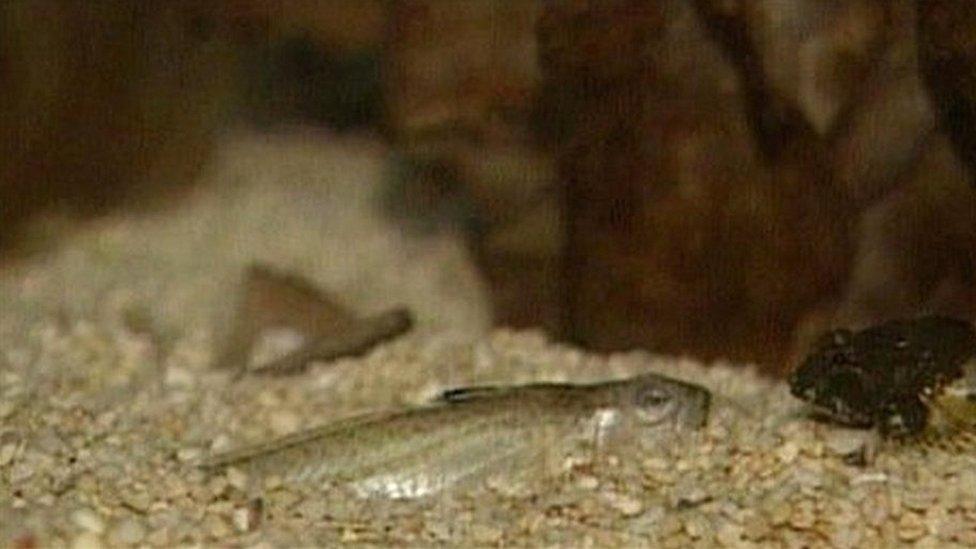Beachgoers warned to watch out for venomous fish
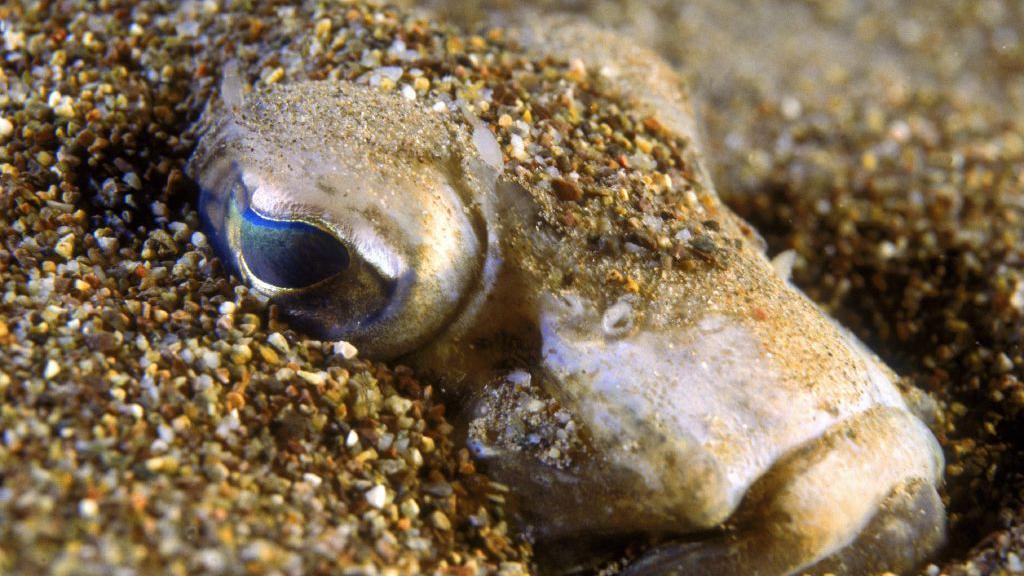
Weever fish stings have been reported in Gorleston and Southwold on the east coast
- Published
Paddlers and swimmers are being warned to take extra care at the beach to avoid being stung by venomous fish.
People on the Norfolk and Suffolk coast have reported stings from standing on weever fish, which have spiny backs that can puncture the soles of feet, causing a painful sting.
Matt Moore, 52, said he was "in agony" after being stung by one of the creatures on the beach in Southwold, Suffolk.
Elric Turbett, of the Sea Life Centre in Great Yarmouth, Norfolk, said the fish were present all year round, but were only a problem to humans during the summer swimming season.

Elric Turbett, an aquarist at the Sea Life Centre, Great Yarmouth, recommends adopting a "sand slide" to avoid getting stung
The creatures, which measure about seven inches (18cm) long, burrow into the sand where they remain hidden.
To avoid being stung, Mr Turbett suggests wearing beach shoes with rubber soles, and also shuffling your feet at the water's edge in order to disturb the fish and make them swim away.
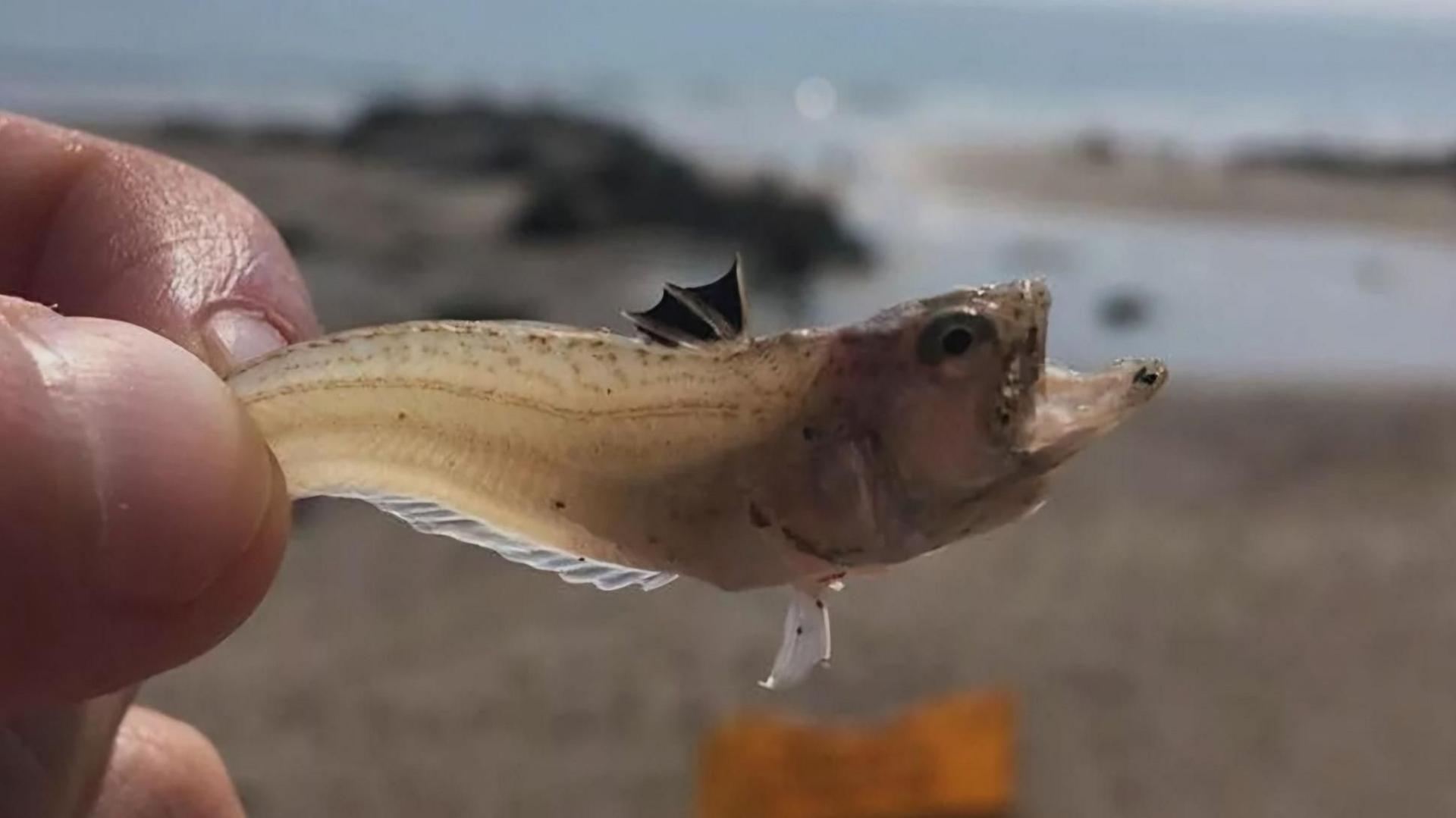
Weever fish have also caused problems this summer further around the coast, including this one in Mablethorpe, Lincolnshire
Mr Moore, from Brooke, Norfolk, was stung while on a caravan holiday with his wife Tracy, 53, and family.
He went into the water with his son but soon felt as if he had stepped on a needle, with the pain getting worse "by the second".
"I wanted to get back to where we were on the dunes. And within 10 steps the pain was so bad I couldn't put any pressure on my foot. I had to crawl back to where we had set ourselves up," he said.

Matt Moore, 52, said he was in agony and had to crawl up the beach because he was in so much pain
His son's internet research showed a weever fish was the likely culprit.
"I had heard of them, and having been swimming in Southwold for so many years I didn't think I would have any issue," said Mr Moore.
"It was agony for about 20 minutes and the pain lasted about an hour-and-a-half, and then disappeared of its own accord."
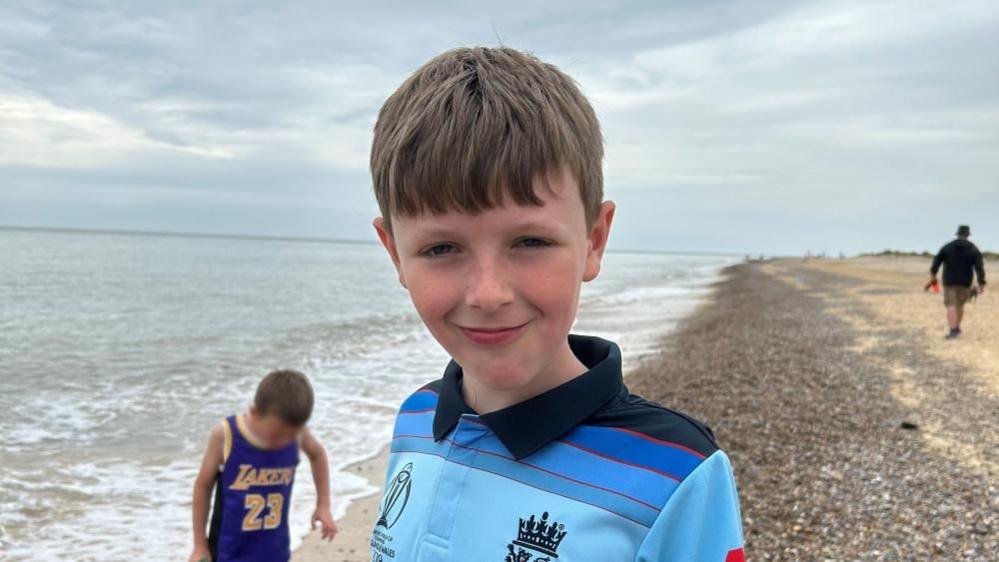
Sid, nine, suffered a severe burning sensation after being stung by a weever fish on Gorleston beach
Another holidaymaker, Tim, from Nottingham, said his nine-year-old son Sid was stung on Gorleston beach earlier this month while body-boarding.
"Sid walked out of the sea on the sand and said he thought he had stepped on a really sharp stone," he said.
"It didn't hurt too much at first, but within a few minutes the pain got more and more intense and became excruciating. He said it was like his whole foot was on fire."
Sid's toe was bleeding a little and there was a puncture wound, he said.
"The bottom of his toe quickly went completely black and it swelled right up," he added.
"We thought initially it may be from a jellyfish or a sea urchin, but when we Googled it was clear it was a weever fish, which we'd never heard of.
"The pain was really serious for around an hour before it started calming down."
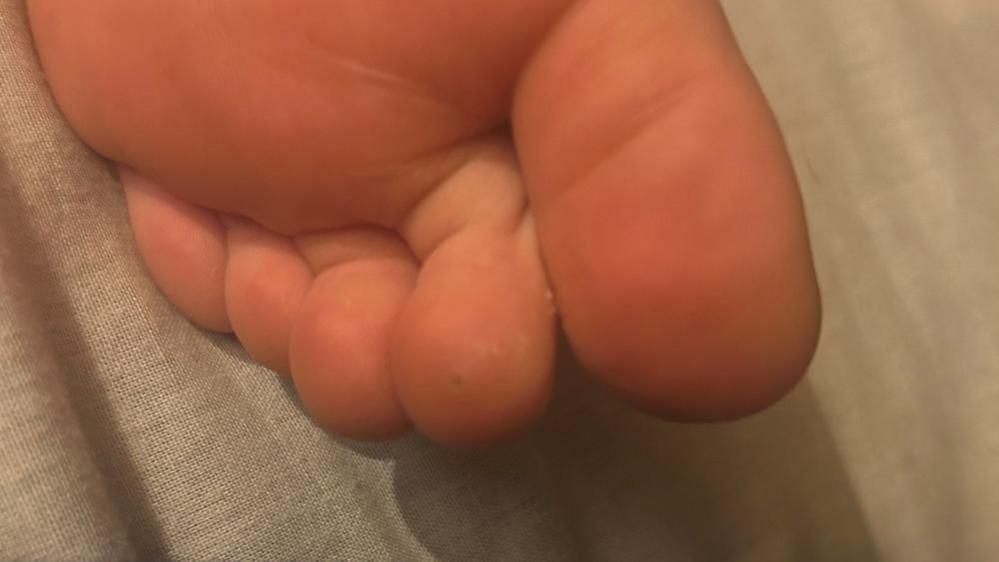
Sid's second toe shows the black mark where the weever fish spine punctured the skin
Mr Turbett, an aquarist, said: "I wouldn't say that weever fish in themselves are a problem; I'd say us standing on them is probably the biggest problem."
He said anyone doing so should seek medical attention and put their foot in water as hot as they could stand for about 30 minutes.
Painkillers could also help, he added.
Rob Spray, Norfolk's marine fish recorder, said there were the "normal number" of weever fish around.
But he said the late summer meant there were a lot of people on holiday and in the water.
"It's just the luck of the draw if you happen to step on them," he said.
The fish spend their time in the sand, underwater, and do not go deeper than the tideline, he explained.
Their spine is intended to make any prey that gulps them down spit them back out.
"Weever fish don't attack... their spine defence on their dorsal fin... it's their last line of defence," he added.
Further advice on what to do if you have been stung in the sea can be found on the NHS website, external.
Warnings to watch out for weever fish after a number of stings across Norfolk beaches.
Get in touch
Do you have a story suggestion for Norfolk?
Follow Norfolk news on BBC Sounds, Facebook, external, Instagram, external and X, external.
Related topics
More related stories
- Published14 August 2024
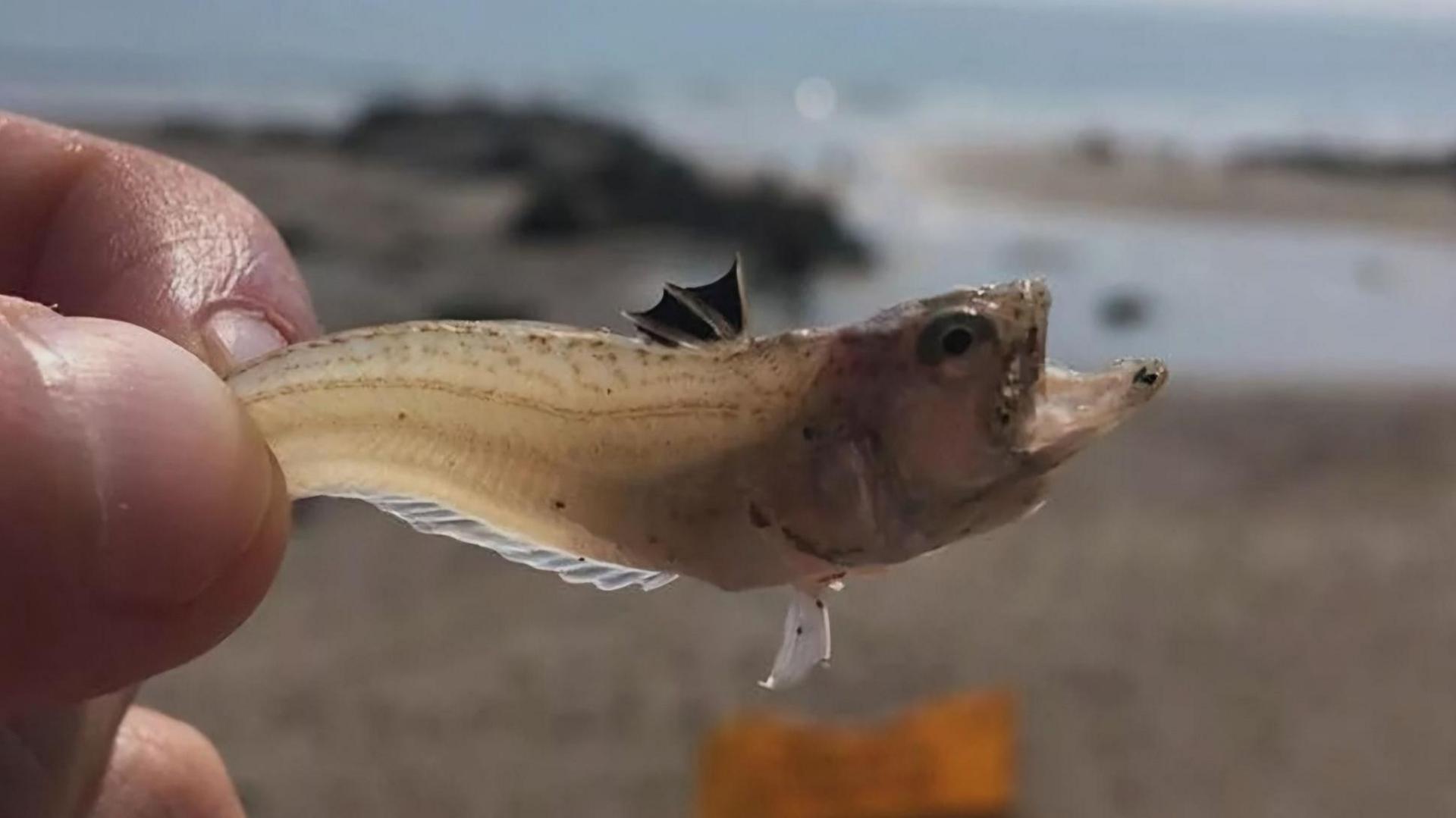
- Published26 June 2021
